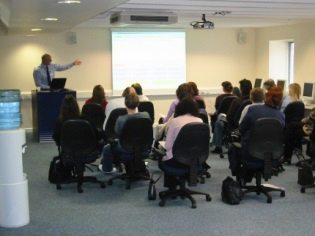Employing young people over the school holidays.
We are coming up to the annual school holidays and each year we get asked about the guidelines governing part-time employment over the summer holidays for children who are still attending school.
The law is very clear about the consideration we have to include when we employ young people. Hopefully this article will help you if you are considering employing a young person during the holidays.
This week’s recent HSE case looks at:
As ever, if you have a subject that you would like us to cover one week, please contact us by phone 01458 253682, email or via our Facebook page or by Twitter.
Employing young people over the school holidays
We are coming up to the annual school holidays and each year we get asked about the guidelines governing part-time employment over the summer holidays for children who are still attending school.
The law is very clear about the consideration we have to include when we employ young people.
Definition of a child and a young person
Between the ages of 13 – 16 the young person is considered a ‘child’, once the reach 16 and until their 18th birthday they are considered a ‘young person’.
Getting a paper round is typically that ‘first job’ for most youngsters and can seem the obvious answer if your kids are pestering you for extra pocket money. But while learning to earn their own money, and how to manage it, can be a valuable life lesson it’s worth checking the rules first so you don’t find yourself on the wrong side of the law.
What age can children work?
They can’t work until they are 13; that’s unless your child is doing modelling, TV or theatre work, which are some of the specialist professions where younger children are allowed to work. In these cases a ‘performance license’ has to be issued by the local authority who also liaises with the school to ensure your child’s education isn’t likely to suffer.
What work can they do?
From 13, teenagers can do ‘light’ work; that’s things like paper rounds, car washing, working in local shops, hairdressers, cafés or restaurants, (although they can’t be involved in food preparation). In some areas there may be local bylaws that place further restrictions on either the hours or type of work they can do and you can check this out with your local authority.
How many hours can they work?
Children can work a maximum two hours a day outside school hours, but not before 7am or after 7pm and only one hour before school.
During term time children can work up to 12 hours a week. This includes the maximum two hours on school days and on Sundays and up to five hours on Saturdays, or eight hours on Saturdays for 15 to 16-year olds.
During school holidays this goes up to 25 hours a week for 13 to 14-year-olds; which means they can work up to five hours every day except Sunday when it’s a two hour limit.
For 15 to 16-year-olds the holiday working limit is higher; up to 35 hours a week; with a maximum eight hours a day and up to two hours work on Sundays.
If they’ve taken on a regular part-time job there’s probably pressure on them to keep it up during school holidays but under child employment regulations they must get a minimum two week break from work during school holidays at least once a year.
Does the minimum wage apply?
No, this doesn’t kick in until you’re over the school leaving age so there are no set rates for children under 16.
While it’s probably unlikely any part time work is going to take your child’s earnings beyond their tax free limit of £10,000 in the 2014/15 tax year, (this limit includes any income but also interest on savings), if they do go beyond this limit they’ll pay tax just like adults
Who needs to know if they’re working?
It’s down to employers to tell the local authority’s education department if they’re offering work to anyone under the school leaving age. Depending on the local bylaws the local authority may then issue a ‘work permit’.
But if we’re talking ‘work experience’, which is arranged through the school, then work permits won’t be needed.
And if you run a family business and get your kids to ‘help out’; even if the work’s not paid, you should still let the local authority know.
Full time work
Working hours are restricted for anyone under the school leaving age but this doesn’t automatically mean age 16. The ‘compulsory’ school age means staying at school ‘until the last Friday in June within the academic year of your child’s 16th birthday’. Beyond this date teenagers can apply for their national insurance number and work full time.
If you have any questions about the risk assessment requirement for your organisation employing someone over the summer holiday period, or even if you are considering taking someone on full /part time or as part of an apprentice scheme, then please contact us by phone 01458 253682, email.
We were exhibiting AGAIN LAST WEEK
We had a good day last week at the Business Expo event in the Steam Museum in Swindon.

It was good to meet lots of people and to make new business connections
Our next exhibition is in Bristol in November – we hope to see you all there.
Taunton & Somerset CPD Group at The Lawns Taunton
Thanks once again to everyone who attended on 24th May for the Thorn Lighting Seminar and we hope you will all be able to attend the next one as it looks like it will be very interesting.
Martin Kent our Customer Relations Manager has arranged this month’s seminar – see below. This is the last of these seminars until September so as not to clash with the holiday period. If you would like to give a talk, or know of somebody who would, in the Autumn and Winter months please contact Martin.
The third of these new seminars is on Wed 28th June at 12-15pm prompt please: at The Lawns Taunton..
Our Speaker will be from Ecophon which is about Ceiling Design and Room Acoustics.
If you haven’t already booked your place, or if you are not on the CPD Seminar mailing list but would like to be please drop Martin an email and he will deal with your request.
Training Courses
We are pleased to announce that we have been appointed as a British Safety Council approved Training Centre.
This allows us to run Ofqual accredited qualifications. These Qualifications sit on the Regulated Qualifications Framework and include such courses as
- the CSCS Green Card which was developed in partnership with the Construction Industry Training Board (CITB) for people wishing to apply for a CSCS card.
- Level 2 & 3 Supervising Staff Safely mixed with Risk Assessment which is comparable to IOSH Managing Safely
There are more courses to follow in May and June – See below.
We are also looking to run some short Health and Safety awareness sessions to emphasise the need for improving your H&S procedures.
We do not run open courses during July and August as it clashes with the holiday period but we are available for your “In House” course
Our next batch or courses will start in September 2017
If you have any questions about these courses or any other training or would like us to run a particular course for you, call Jon Wilkins of the Wilkins Safety Group on 01458 253682 or email him
